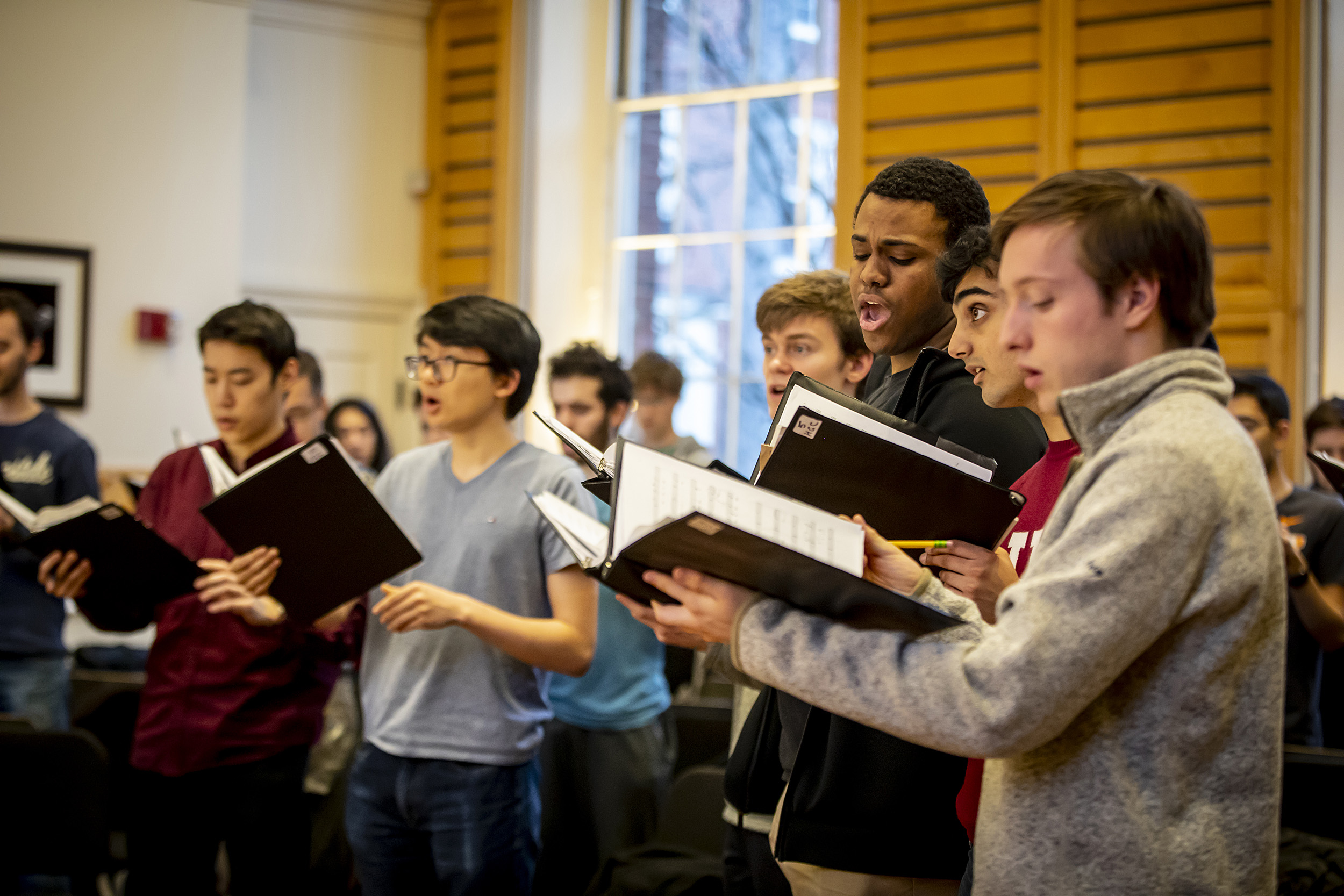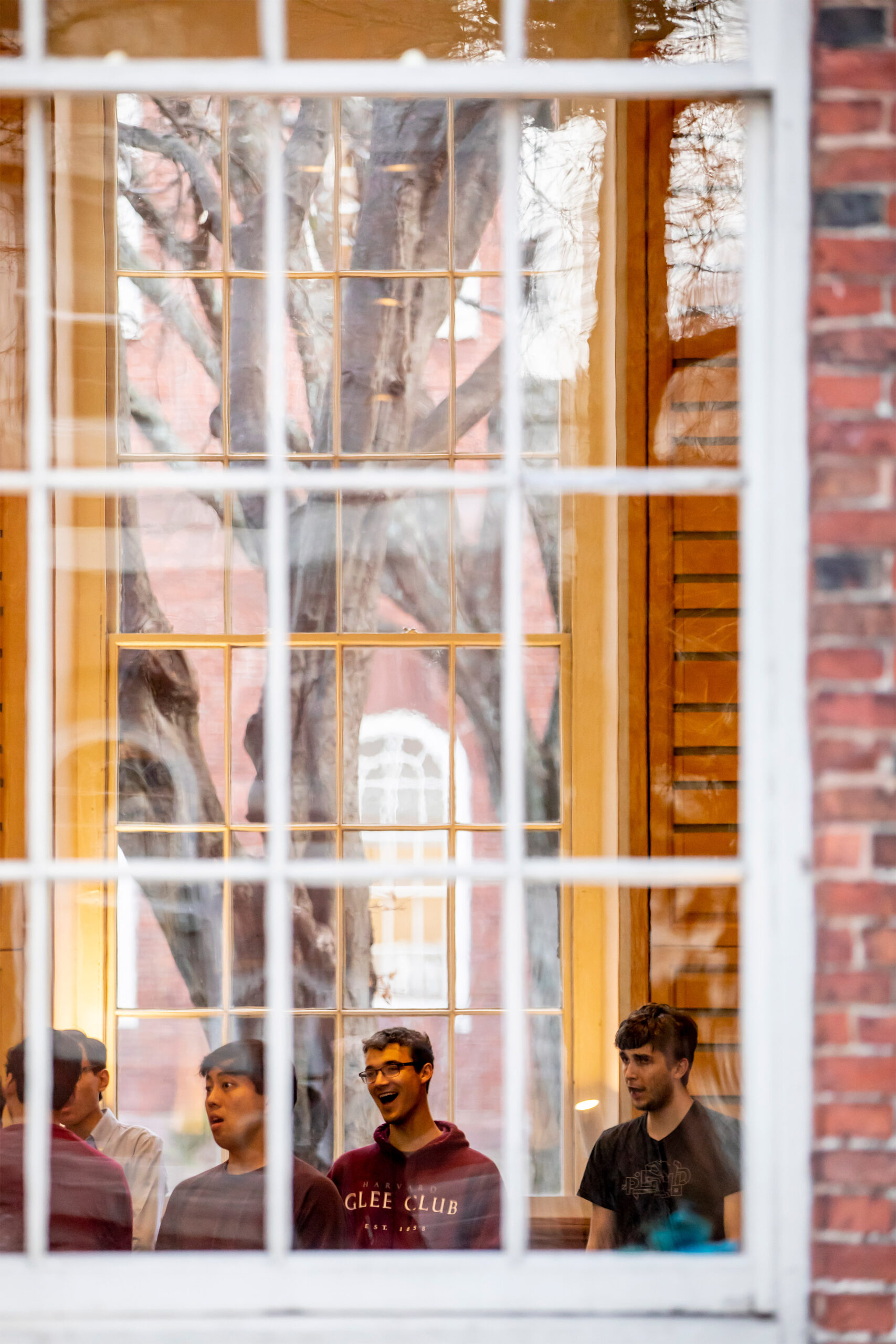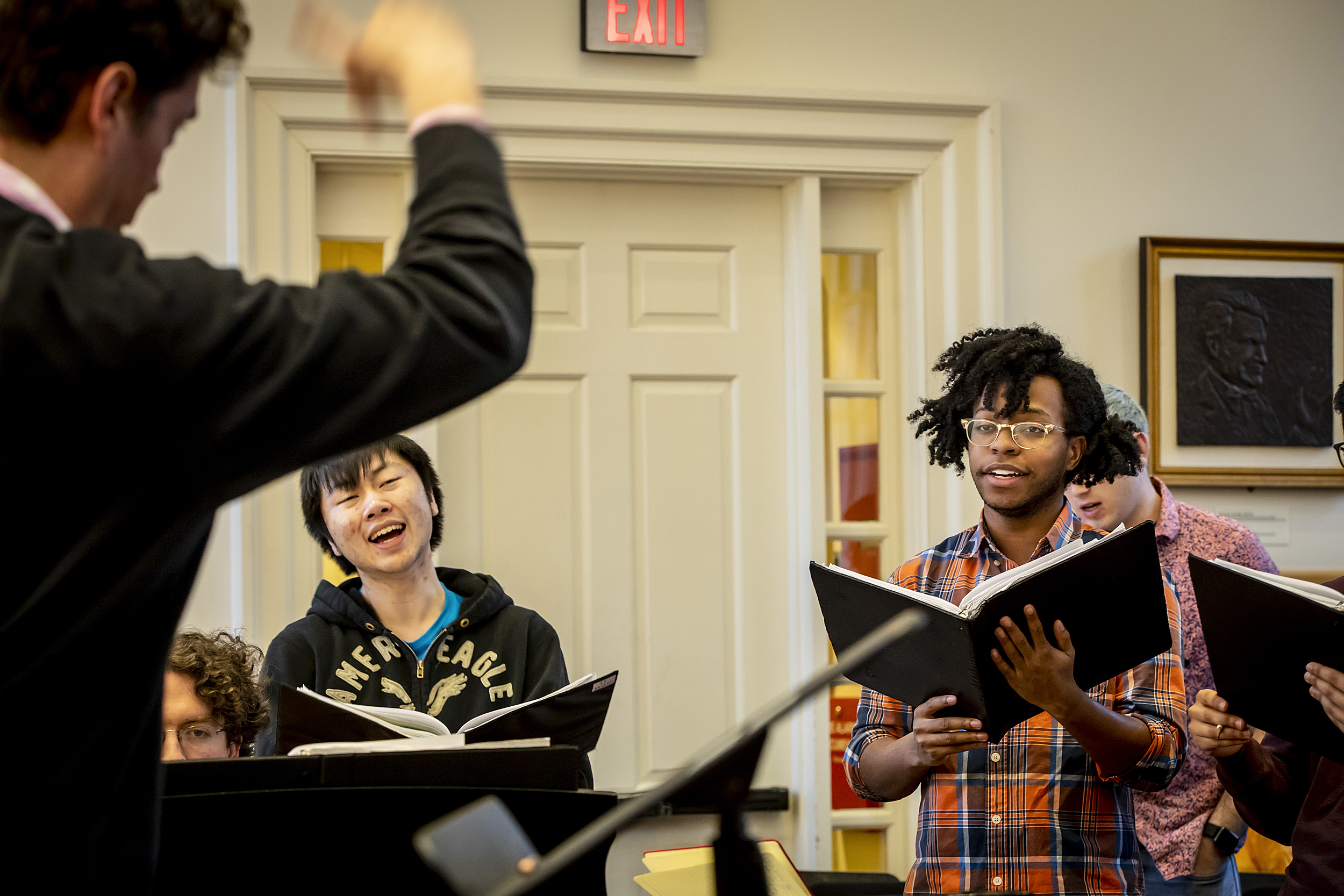
Rose Lincoln/Harvard Staff Photographer
Glee Club to honor W.E.B. Du Bois
Choral concert will pay homage to the scholar, author, and Civil Rights leader who as a student was denied entry to the group
In 1888, sociologist and author W.E.B. Du Bois arrived at Harvard as the first black scholar to study for a doctorate from the University. Du Bois broke barriers on campus, but faced exclusion from social life, including the all-white Glee Club founded in 1858.
More than 100 years later, the Harvard Glee Club is starting to reckon with its role in Du Bois’ campus experience. On Saturday, the club will perform a concert titled “The Legacy of W.E.B. Du Bois,” a celebration of African-American spiritual music and Du Bois’ writings on race and inequality.
“Our troubled relationship with Du Bois was an impetus for the show,” said Glee Club publicity manager Michael Baick ’22. “We’re trying to honor Du Bois and make [the concert] about him, not us. We should always be thinking about how our music can resonate beyond the space where we’re singing.”
The concert honoring Du Bois is a step toward reconciliation with the organization’s past while looking toward its future. Andrew Clark, the music director and conductor of the Glee Club, as well as director of choral activities and senior lecturer on music, conceived the project in 2015. He had learned of Du Bois’ exclusion from the Glee Club after joining the faculty in 2010 and had audited courses on race and modernity and Du Bois’ writing with Cornel West, professor of the practice of public philosophy. It was in these classes that Clark began to form the foundation for the project.
“Music is such a big part of Du Bois’ work,” said Clark, “and he considers music as a vehicle for transformation, reconciliation, defiance, and resistance.” He added that the great sociologist and historian’s influence is clear in both the program’s content and form.
In his pioneering work, “The Souls of Black Folk,” Du Bois began each chapter with an excerpt from both a black spiritual and a European poem, asserting their equality as cultural products. The Glee Club is applying this method to their concert, singing work from both traditions.


The Harvard Glee Club rehearses for the concert at Harvard’s Holden Chapel.
Rose Lincoln/Harvard Staff Photographer
“We’re trying to put western European music in conversation with African-American [spirituals] in a way that Du Bois would appreciate — as two rich cultural resources of equal value that have a lot to say to each other,” said Clark.
Clark found an ideal collaborator for the concert project in Tesfa Wondemagegnehu, a singer, conductor, activist, and visiting instructor of music at St. Olaf College in Minnesota. Wondemagegnehu is also the co-founder of Justice Choir, a grassroots movement dedicated to collaborative and collective power through singing. Clark and Wondemagegnehu will both conduct the concert.
“Working with the students has been really inspiring,” said Wondemagegnehu, who visited campus several times this winter to advise and rehearse with students. “We’ve had some amazing dialogue. The issues that Du Bois was talking about in the early 20th and late 19th centuries are still issues in 2019. So, how can we be part of the change?”
The concert also features an original piece, “To Love,” by Glee Club member Nathan Robinson ’20. Robinson composed the music while studying in the Harvard Choruses New Music Initiative program and created lyrics using text from a chapter of “The Souls of Black Folk” titled “Of the Passing of the First Born.”
In the chapter, Du Bois recounts the death of his infant son, while expressing relief that the child wouldn’t suffer further. “Du Bois is always very matter-of-fact when he writes, but what really stuck out to me was how pained the writing was,” said the Winthrop House resident. “The wonderful thing about Du Bois is that his words are very poetic, so it was very easy to find lines that popped out.”
“The Legacy of W.E.B. Du Bois” draws upon Harvard’s academic and musical resources, while also expanding the idea of what a Glee Club concert can look like. “I haven’t seen many pieces with text by black writers, besides spirituals,” added Robinson. “Having modern music set to that text was a very fun and new experience for me.”
The concert will also feature audience participation and readings of Du Bois’ work by faculty and Glee Club members. Students will also collect donations for the W.E.B. Du Bois Society, an enrichment and leadership program hosted by the W.E.B. Du Bois Institute at the Hutchins Center for African and African American Research.
“I think the way we’re working with collaborators, artists, and activists is something very special,” said Baick. Performing this tribute to Du Bois is “the epitome of why I want to be at Harvard, and to sing at Harvard — to be able to engage so thoughtfully with history.”
The Glee Club’s concert “The Legacy of W.E.B. Du Bois” is free and open to the public on Saturday at 8 p.m. in Memorial Church. Tickets are available at Harvard Box Office’s website or by calling 617-496-2222.







